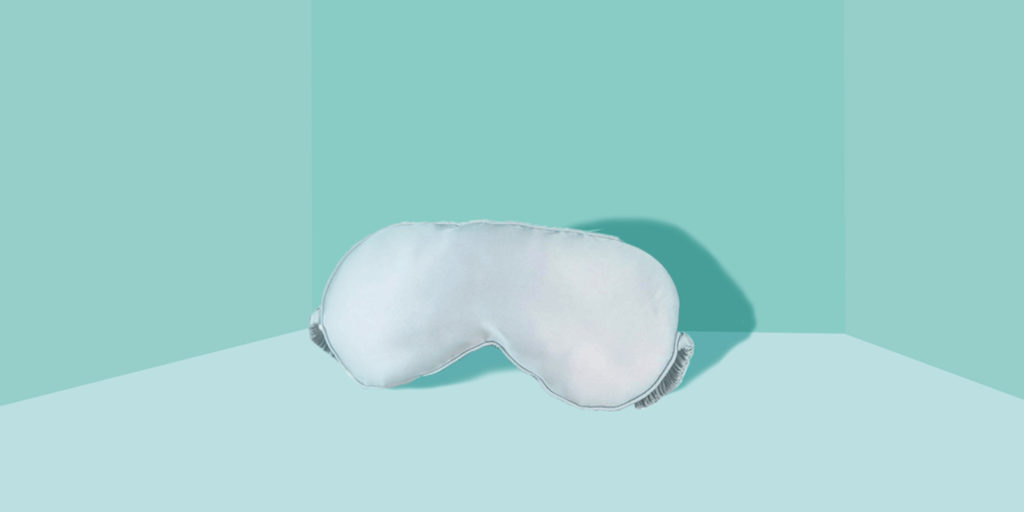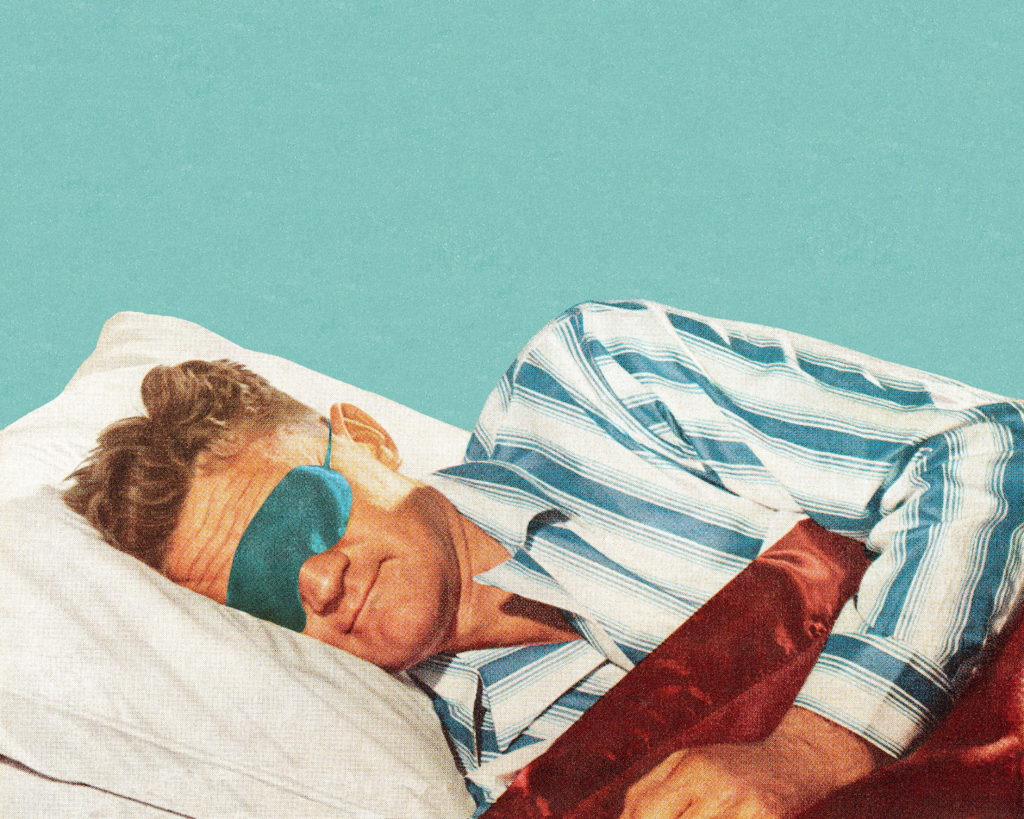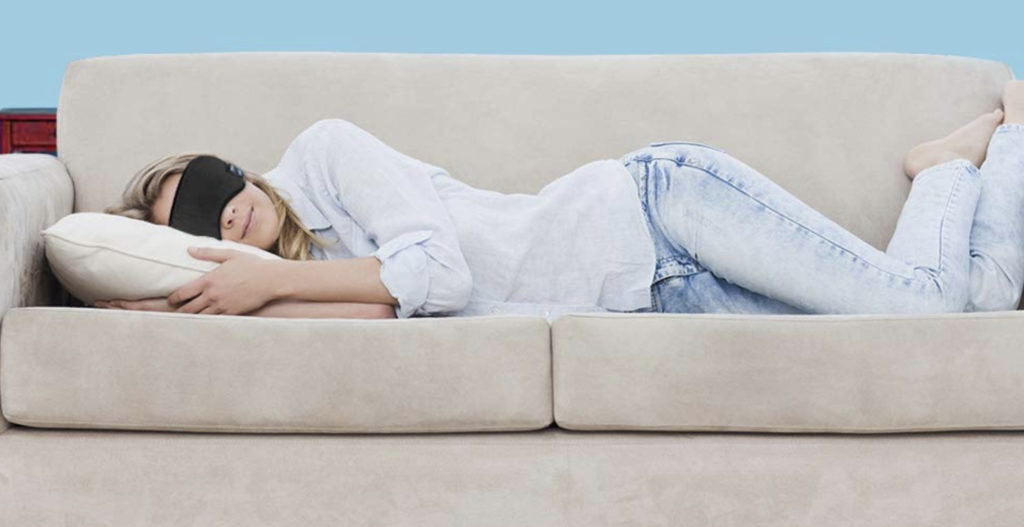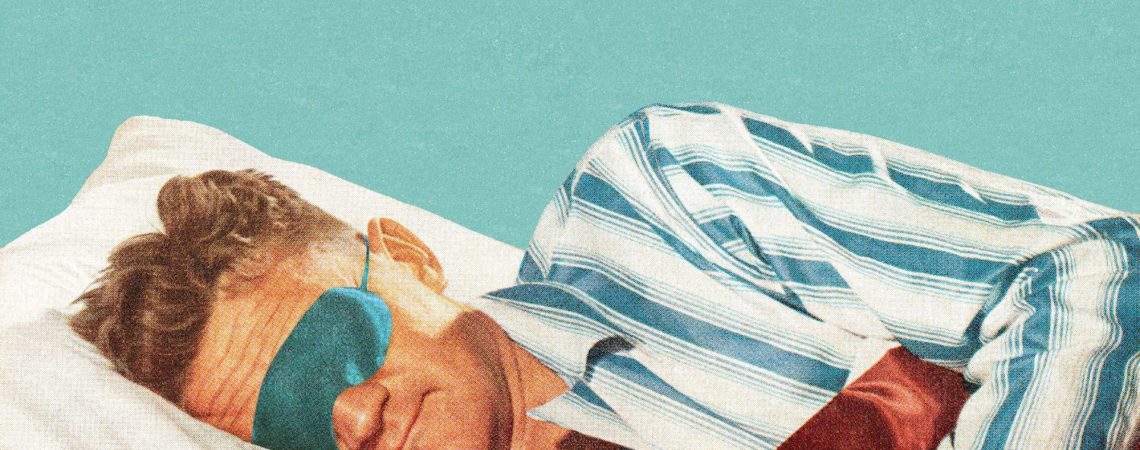If you are a fellow insomniac, odds are you have tried countless things to improve your sleep quality. Sleep health is an essential component of maintaining our physical health and wellbeing. Without it, we can become irritable, tired, and develop various health issues. We want to help you avoid that – which is why we are shedding a little spotlight on one of our favorite natural sleeping tips: wearing an eye mask!

What is the Infamous Eye Mask?
Eye masks are a tried and true sleeping tool used by many every single day. They are, essentially, a soft mask that goes over only the eyes while you sleep. They originated as a medical device in the 1930s to “shield eyes from rays of light” following medical procedures (1). Since then, we have adopted the eye mask as a part of our regular bedtime routine. The sleep mask market has grown to over $14 million alone! Experts believe this is because of the increase in the number of people who regularly travel for work and leisure. Thus causing a steady rise in the reported number of sleep disorders in the US (2).

How Do Sleep Masks Improve Sleep?
The primary way that eye masks improve sleep is by blocking external light from the eyes. We are called a diurnal species – meaning that our bodies are designed to be awake and active throughout the day and resting at night. We have various mechanisms in our bodies that help us maintain this schedule. One being our circadian rhythm, which is what many refer to as our “internal clock.” Light is a trigger that signals to that clock what time of the day; however, artificial light can trick our bodies into thinking it is daytime even after the sun has set. When our eyes are exposed to artificial light, it causes the suppression of a hormone called melatonin (3). In a healthy individual, melatonin levels rise at night, which causes the brain to “shut down” and allow you to fall asleep. Exposure to light close to or during bedtime will prevent melatonin from building up, thus shifting your internal clock and messing up your sleep schedule.

Another way that eye masks can improve sleep quality is by influencing another hormone called cortisol. Specialists call cortisol the “stress hormone,” and it keeps our bodies awake and alert. We typically release cortisol during a stressful event to trigger the fight-or-flight response that helps us escape from a threat. Cortisol levels rise when we wake up and decrease when we fall asleep; however, when our eyes are exposed to artificial light, it causes extra cortisol to be released. Cortisol, therefore, keeps us awake – even when we feel tired! Eye masks help prevent any light from reaching the eyes while sleeping to reduce the amount of cortisol circulating in the body – helping you fall and stay asleep!
Are there any Other Benefits to Sleep Masks?
While most turn to their eye mask as a way to shield their eyes from the light, some people enjoy additional benefits. One is a cooling effect, which can reduce eye puffiness and dryness. There are eye masks that contain a gel, which can be cooled before wearing. This cooling effect can help lower blood flow to the eyes. This helps to reduce puffiness, which commonly occurs under the eyes as what many call “eye bags.” Slowing blood flow can also reduce symptoms of dry eyes, which is a common problem that many people struggle with. An additional benefit to the cooling of the eyes is a reduction in migraine headaches.
If you are having trouble falling asleep, perhaps it is time you try out an eye mask! Head over to our Good Sleep Quiz here and we will match you with customized sleep aids, like the sleep mask. We will send them right to your front door – all you have to do is get in bed and sleep!



